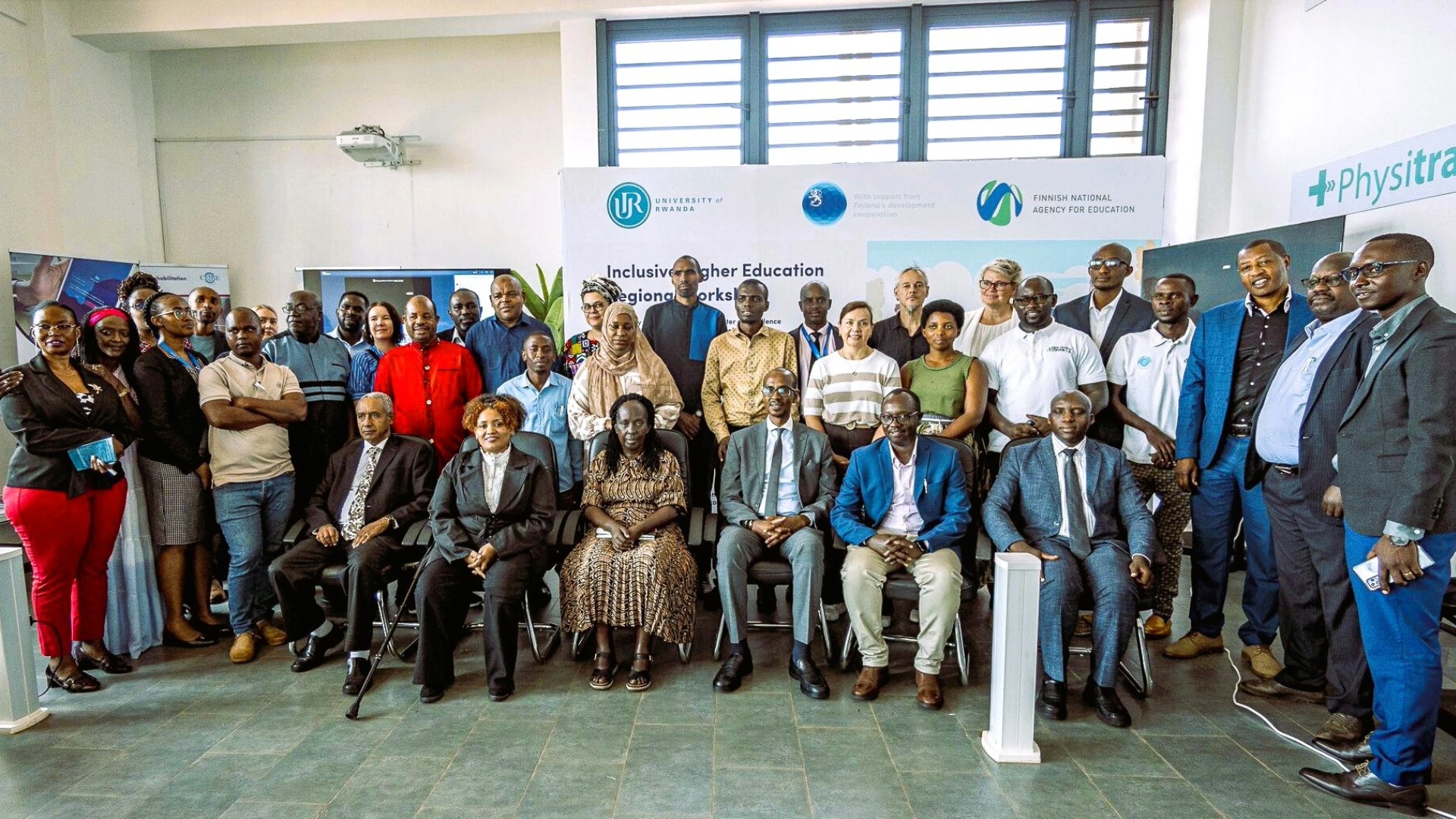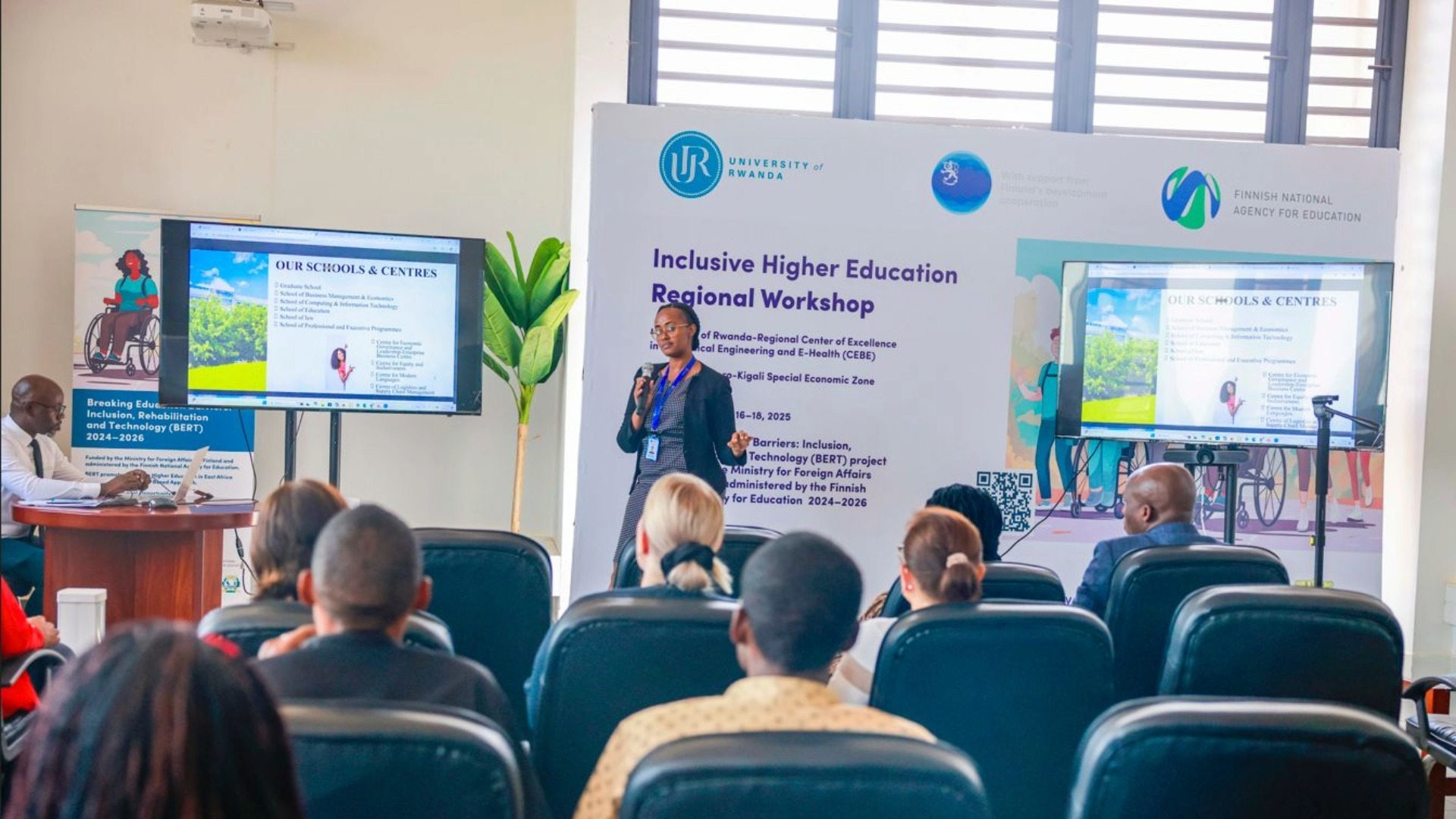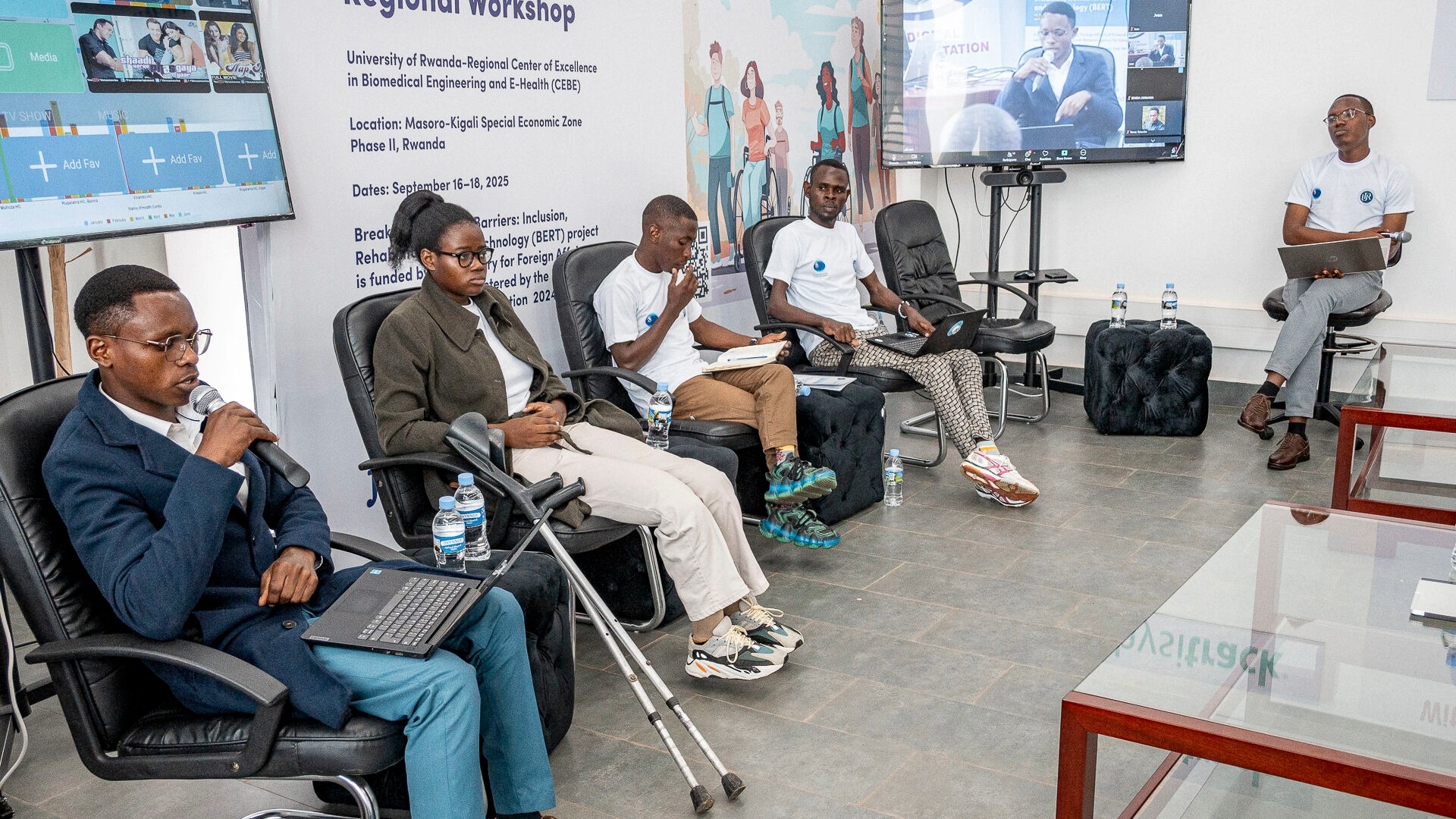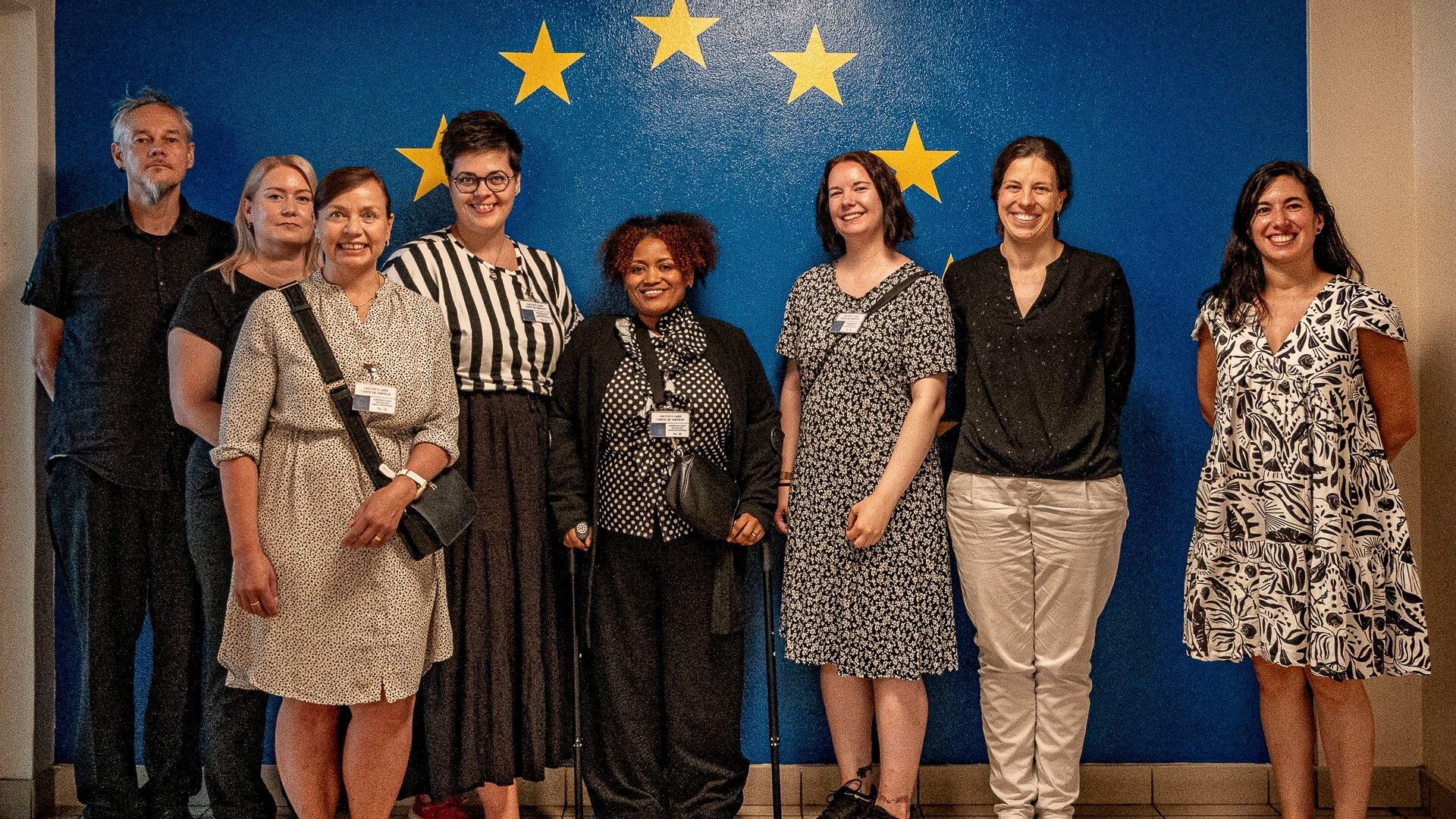The Breaking Education Barriers, Inclusion, Rehabilitation, and Technology (BERT) project recently hosted its Inclusive Higher Education Workshop at the University of Rwanda’s Regional Center of Excellence in Biomedical Engineering and E-Health (UR-CEBE) in Kigali from September 16 to 18, 2025.
This workshop marked a significant milestone for BERT, enhancing the capacity of higher education institutions (HEIs) across East Africa to break down barriers to ensure the inclusion of people with disabilities. It facilitated a platform for sharing knowledge, experiences, and best practices among project members and stakeholders, including partners from Tampere University, the University of Rwanda, and the State University of Zanzibar, as well as participants primarily from Rwanda, Tanzania (Zanzibar), Uganda, Kenya, and Ethiopia, joining both in person and online.
Day One: Laying the Foundation for Inclusive Education
The University of Rwanda leaders opened the workshop: Dr. Edward Kadozi, Director General of HEC, reminded us that “Providing inclusive education is not a favor; it is a human right that must be implemented without exception.” Prof. Abraham Haileamlak Mitike, Principal of UR-CMHS, added: “Education is a fundamental human right; it is therefore our collective duty to ensure that no one is left behind because of disability or any other circumstances.
The day proceeds with presentations on the results of landscape analysis research of inclusive education in East Africa, conducted under the BERT project, which highlighted both the challenges and opportunities in the region. Other presentations focused on the roles of digital accessibility and assistive technologies in creating an enabling learning environment. The presentation by the University of Kigali on their inclusive education initiative was insightful and significant. We were also inspired by Mr. Steve Williams' efforts at the Kyaninga Child Development Centre in Uganda, particularly their inclusive education work, which incorporated the provision of locally made assistive technologies aimed at meeting the community's needs, thereby ensuring that people with disabilities can attend school.
The day concluded with a visit to the Digital Rehabilitation Hub and Prosthetic and Orthotic Centers at the University of Rwanda, giving participants a hands-on understanding of inclusive support infrastructure.
Day Two: Collaborative Exploration and Innovation
Day two focused mainly on co-creation and innovation, exploring solutions for inclusive pedagogy and the use of artificial intelligence in assistive technologies. Participants tried AI-enabled eyeglasses and other assistive devices, making the session interactive and engaging.
Additional presentations covered the range of assistive technologies available for learners with diverse needs. Mr. Bahati Satir Oman from Uwezo Youth Empowerment in Rwanda presented their inclusive education initiative through the ongoing Answer Project, which has enhanced our understanding of the country's context.
Mr. Fasil Ayele from Cheshire Ethiopia emphasized the important role of rehabilitation in ensuring inclusive education and strengthening the idea that inclusive education entails collaboration across multiple sectors.
Day Three: Centering Student Voices and Community Engagement
The final day featured the important voices of students with disabilities, who are established and have been active in the BERT project as peer groups at the University of Rwanda and the State University of Zanzibar. They presented accessibility audit reports, recommending key improvements to their campuses, and shared inspiring stories of thriving despite structural and environmental barriers during the panel discussion.
The inclusion initiative shared by Dr. Nelly Otube fromKenyatta University in Kenya was enriching, particularly in strengthening the project's aim of fostering regional collaboration in East Africa. We also had the opportunity to learn from the inspiring experiences of 1000 Hügel e.V., as presented by Ms. Janine Frönd, whose community-based rehabilitation work in rural Rwanda ensures that no one is left behind.
The workshop concluded with a visit to Rose Mystica School in Kamonyi, a model inclusive school, providing a concrete view of Rwanda’s inclusive education practices.
A Shared Commitment and Collaboration
This inclusive education workshop was made possible by the enthusiasm and collaboration of our BERT project partners and stakeholders. We sincerely appreciate your commitment and dedication to this important cause. We believe that the shared experiences, challenges, and solutions discussed during the workshop have established a strong foundation for further enhancing our collaboration. Together, we can create an inclusive and accessible learning environment that ensures everyone's right to education is realized.
The BERT project strives to enhance the capacity of HEIs to break down barriers that hinder the inclusion of people with disabilities in education and society. It is funded by the Ministry for Foreign Affairs of Finland and administered by the Finnish National Agency for Education (EDUFI).






